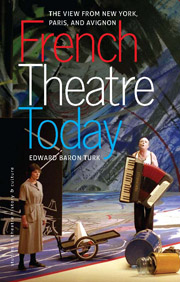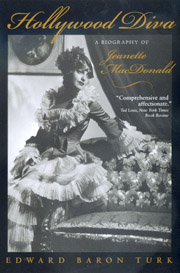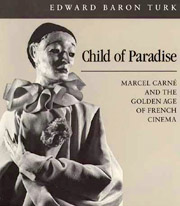Valedictory Thoughts of an MIT Humanist
Edward Baron Turk, John E. Burchard Professor of the Humanities,
and Professor of French and Film Studies
Presented at MIT, October 21, 2011
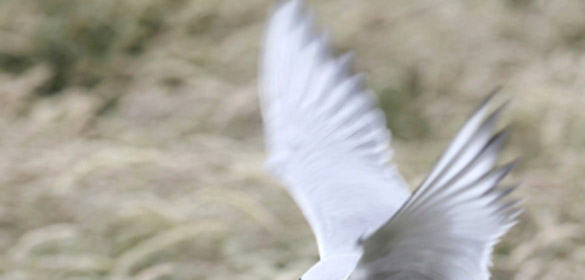
"I’ve chosen to ask myself a very simple question:
What have I been doing at MIT all these years?"
I WILL BEGIN WITH A REMINISCENCE. The time is May 1967, near the end of my senior year at Brooklyn College. I am seated in the Grand Ballroom of the Plaza Hotel in Manhattan. A swank luncheon is being held to honor all students at colleges within the City University of New York system who recently won graduate fellowships, in my case a Woodrow Wilson Fellowship. The guest speaker that afternoon is the historian Arthur Schlesinger, Jr. His topic is “The Crisis of the Humanities.” In all honesty, I remember very little of what Schlesinger said. But I vividly recall his opening words. “The humanities,” Schlesinger said, “are always in crisis.”
I am not going to try to analyze today’s crisis, nor am I going to predict what the challenges of the humanities are for the future. And I will not opine on the immediate fate of the humanities at MIT, although I am optimistic that the current plan for a possible reorganization of certain humanities sections holds the potential to enhance faculty research and will, I deeply trust, guarantee that the undergraduate program I feel closest to—French language, literature, and culture courses conducted entirely in French—will be maintained.
A famous farewell speech
The earliest farewell speech I can remember was that of President Dwight David Eisenhower, in 1961. In that televised speech, Eisenhower famously warned against the unwarranted influence of the industrial-military complex, and if you re-read his address, it’s interesting to note that Eisenhower makes specific reference to certain dangers of that influence for American universities.
Since that time, MIT has had quite a role to play with respect to both industry and defense; and I have the impression that, for very understandable reasons, MIT, like many other top research universities, did not always choose to function quite as cautiously as Eisenhower would have liked. So I figure that if MIT didn’t pay much heed to Ike’s advice, it’s certainly not going to follow mine with respect to the humanities! And that’s why I am not going to offer any explicit advice about the future place of humanities in the MIT curriculum or in higher education and society at large. Instead, I’ve chosen to ask myself a very simple question: What have I, Edward Turk, been doing at MIT all these years?
What have I been teaching all these years?
The brochure you have on my career gives you a fair idea of what I’ve been researching and writing about. But what exactly have I been teaching? I think that this is an important question. If, upon retirement from the Institute, I leave a local legacy, it will not be due to my research, which in theory is available to everyone, everywhere. The local legacy will reside in whatever impact I have had on the hundreds and hundreds of students who have studied with me, mainly in small seminars.
In a general way, for all humanists at MIT, the potential impact we have in the classroom is automatically greater than what we would exert at peer institutions, where the liberal arts are more central to the enterprise and where there is a much larger percentage of professors who share backgrounds, values, and missions fairly similar to my own. At MIT we are fewer, and therefore we are, literally, more eccentric and, figuratively, more of an oddity in the overall academic landscape.
Being a humanist at MIT
This condition has the political disadvantage of often making our voices less palpable and less understood by the overall community. But it serves as an extraordinarily positive factor in the humanities classroom, since that very desirable collision between the values of a humanities professor and those of his or her students is rarer within the MIT context, and thus has the potential for a disproportionately larger impact on the production of fresh thinking within any given student’s undergraduate experience.
Yet in asking the question “What have I been teaching at MIT?,” I’d like to focus not on quantitative impact, but on qualitative effect. And this is not simply a question of the particular subjects I teach. I’ve been teaching literature, cinema, theater, and cultural and intellectual history, with an emphasis on the French, European, and American culturescapes. I’ve had the joy of exposing students to artists as diverse as Jean Racine and Yasmina Reza, Jean Renoir and Claire Denis, Delacroix and Magritte, Ronsard and Rimbaud, Massenet and Poulenc, Wagner and Jerome Kern, Richard Powers, Derek Jarman, Dennis Cooper, Xavier Le Roy, and Chantal Akerman—to name a tiny few.
With respect to artistic works, I have, of course, aimed to sensitize students to matters of form and imaginative vision, and to the critical vocabulary and conceptual tools needed to speak intelligently, apprehend richly, and evaluate justly such works; and with respect to authoritative discourse about such works, I have, of course, urged students to scrutinize a thinker’s texts for coherence, persuasiveness, contradictions and blind spots. Basically, this is what all professors of the liberal arts tend to do.
More than teaching subjects
But soon after arriving at MIT, I came to realize that more than teaching subjects, I have really been teaching students. Specifically, I have been teaching students to become a certain kind of adult, or at least prodding them to an awareness that the kind of adult they may have foreseen for themselves when they chose to come to MIT at age 16, 17 or 18, is not the only way of envisaging themselves, both now and in the future.

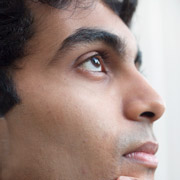
"Soon after arriving at MIT, I came to realize that more than
teaching subjects, I have really been teaching students....
I hope that I've taught them to take flight, to soar above
and beyond the usual and the expected."
What fosters liberty and liberation?
I’d like to quote a sentence from Eisenhower’s valedictory: "Only an alert and knowledgeable citizenry can compel the proper meshing of the huge industrial and military machinery of defense with our peaceful methods and goals, so that security and liberty may prosper together."
With all due humility, it seems to me that those of us in the humanities, and specifically those who are committed to the liberal arts at MIT, have been following an agenda that champions the liberty side of Eisenhower’s equation.
Here are a few of the things that I think I have taught my MIT students.
Passion
Bring passion to whatever you choose to do in life. Be passionate, but never be fanatic, and beware of theories and ideologies and methodologies that claim to explain everything, because in the long run they stamp out the possibility for individual, truly creative thinking.
Language
I teach my students to cherish language. Don’t abuse it. Marvel at its capacity for richness and subtlety. And each time you speak or write or read or listen, be aware of what a unique gift language is to our species, and honor that gift. And, therefore, become angry when that gift is misused and abused—be it by media pundits, advertisers, or politicians.
Contemplation and solitude
And because, if truth be told, your anger is not going to have much immediate impact in changing the status quo, immerse yourself as much as you can in spheres of activity that call for concentration, contemplation, reflection, and nuanced thinking—activities that can’t be done well as part of a rushed, multi-tasking agenda but that cry out for the luxury of temporary solitude, disconnection, and conversing with yourself.
Wonder and sustaining pleasures
In the spirit of Jean Cocteau’s exquisite 1946 film La Belle et la Bête, I teach my students to retain a childlike wonder toward the world. But I teach them never to forget that they are no longer kids, and must refuse to be treated as such. If our commercial culture is mostly bent on infantilizing our pleasures and on numbing, rather than expanding, our imaginative capacities, then search out and make room for subtler and more urbane pleasures, pleasures that stimulate our imagination beyond the ordinary and that activate our critical and, for want of a better term, our spiritual faculties.
Effort and challenges
I teach that material comforts, like easily consumed entertainments, are a terrific part of life: they are fun. But don’t let them sidetrack you from other forms of enrichment, specifically those provided by artists and thinkers who are not embarrassed by their efforts to challenge and transform us and to make us grow. Education is a lifelong endeavor. But you will not make progress if you continually stay within your comfort zone. As its Latin etymology reminds us, education signifies leading us out of and away from the familiar. So don’t fear what at first seems to be different and uncomfortable or supposedly elitist and difficult.
Empathy
Similarly, exercise and cultivate your power of empathy for others and otherness. Empathy, like language, is a uniquely human gift. As Martha Nussbaum recently wrote in her book Not for Profit: Why Democracy Needs the Humanities (Princeton University Press, 2010), empathy enables us to see the world from another’s point of view and to respect other people as complicated human subjects, not as quantifiable objects. I would add that empathy permits us to imagine sympathetically the situation, the predicament of other human beings in social, cultural, and historical circumstances different from our own. Therefore never consider yourself fully educated if you have not yet acquired fluency in at least one language and one culture other than your own. A monolingual take on the world is inevitably impoverished and self-centered.
Excellence and discernment
I teach my students to admire excellence and not to be afraid of identifying the mediocre, the run-of-the mill, and the merely competent and of assessing them for what they are. I also teach them to make enlightened judgments on others. If there is any lesson to be learned from Jean-Paul Sartre—who was himself far from consistently exemplary in his private and public lives—it’s that we must not be afraid to judge people, within our own circle and beyond, by their actions; like language and empathy, this precious capacity for judgment is what separates humankind from other species and helps to make us, and our world, better off.
Humor and humility
I teach my students (by example, I hope) to develop a sense of humor—especially about themselves. I urge them to work with passion, but to avoid grim self-righteousness and to shun complacency. Confidence and a firm sense of one’s autonomy are fine and good; but they can easily devolve into pomposity and egocentrism; therefore always identify your limitations, your weaknesses, and your prejudices, and steadily and honestly seek out the means to remedy or counterbalance them.
Changing
To sum all this up: MIT’s magnificent ambition is to prepare its students to change the world, to make advances in energy, health care, useful applied science, and so on. Therefore, most MIT professors must give top priority to teaching the subject. But it’s the humanists’ responsibility—and their privilege—to make our students change themselves, so that they will be a more self-aware and freer, more open, more flexible person, intellectually, emotionally, and ethically—not only when they go on to advance national and global goals, but also when they deal with neighbors, lovers, family, and friends.
Humanities classes, especially at MIT, open up a safe space that allows students to explore alternative modes for perceiving the world and its inhabitants, and for broadening one’s own sense of the possibilities for living well in the world; it’s a safe space for trying out ideas, for speaking in a voice one often didn’t even realize one had, and for understanding how powerful that newly recognized voice can be to oneself and to others. It’s a domain in which the worthiness of what we do with our lives can be questioned, recalibrated, and changed for the better.
Taking flight
So, that’s what I think I’ve tried to provide for my students.
I’d like to conclude this lecture with a quotation that evokes the magical. It’s from a little book I purchased in Paris this past June called Le théâtre n’existe pas (Fayard, 2011), or There’s no such thing as the theatre.” The author is Jacques Nichet, a distinguished French stage director born just a few years before me, and who in 2009 assumed the chair in Artistic Creation at the Collège de France (Paris). The book is a transcription of Nichet’s inaugural public lecture for the Collège. He ends it with the following words (which I am translating from the French):
Let me now finish my ramblings by telling you one last story—since, as you’ve already sensed, stories are my calling and my pleasure:
I would like to think that what I’ve taught my MIT students is not so much to speak well in French and in English, though I think I’ve done that; not so much to think intelligently about matters artistic, though I think I’ve done that, too; rather, I hope that for at least some of my students, I’ve taught them to take flight, and to soar above and beyond the usual and the expected. •
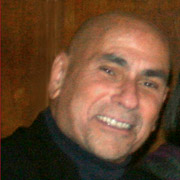
About
Edward Baron Turk is the John E. Burchard Professor of the Humanities, Professor of Foreign Languages and Literatures, and a Chevalier in the Order of Arts and Letters, France. He is the author of four books: Marcel Carné and the Golden Age of French Cinema; Hollywood Diva: A Biography of Jeanette MacDonald; Baroque Fiction-Making; and French Theater Today. Turk is also one of the prime architects of the Comparative Media Studies program.
Suggested Links
Hollywood Diva
Foreign Languages and Literatures
